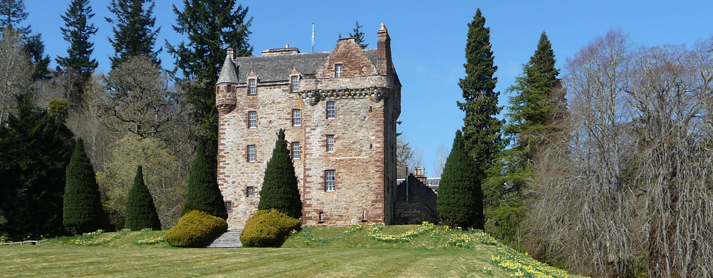John Mackenzie, 5th Earl of Cromartie, explains how the Scottish Mountaineering Trust is helping to preserve wild places and inspire youngsters in Scotland and beyond.

I was a member of the Scottish Mountaineering Club, which made pretty good profits from guidebooks in the Nineties. That helped fund the Scottish Mountaineering Trust, which is like an independent branch of the Scottish Mountaineering Club. The profits from the guidebooks have since run out – we still publish, but now people really want stuff online. So we are looking for people or organisations who are interested in preserving wild places.
We’re run by experienced mountaineers – we don’t have property or shareholders or employees. We’ve helped well over 400 organisations, including the National Trust, with mountain safety, repairing paths… We’re doing something that actually helps Scotland. But we’ve also helped medical and scientific expeditions to the Andes. It is a remarkable organisation, and one that I’m very proud to be a trustee of.
The beginning
I started mountaineering at the age of 12 when my uncle took me on a winter route, and I’ve never looked back. I’m a rock climber and a winter climber, and I like hill walking. I haven’t climbed in the Himalayas, but I’ve been to most other places – a lot in Europe, but mainly Britain. I’ve also done a lot of pioneering new routes – well, hardly ‘new’ routes, as the rock has been there for several hundred million or 1,000 million years!

Equipment was a rope when I started. I think, ‘How did I get away with it as a student!’ I’m more cautious with age, which is only the distillation of near- misses. I’m not the kind of person who says: ‘Let’s just go see what it’s like.’ I put in a lot of homework and I’m very aware of weather. It’s better to err on the side of caution – there’s no excuse for folks going up hills in high heels.
Some things that young people are doing now are just fantastic –things that I could comprehend but I couldn’t do, as much as I would like to. You watch a youngster on a climbing wall and think: ‘Bloody hell, how are they doing that?’ The walls have helped to increase people’s technical ability, which is in part funded by the SMT – they should have all the support we can possibly give them to keep people safe and to encourage them to think outside the box.
I’m 72 but I’m still quite fit. One of the great things about mountaineering is I think it keeps your mind young. You’re always aspiring to something better. You’ve always got ambitions, stuff that we’ll probably never achieve, but it doesn’t stop the dreaming and excitement.
What is a typical lord?
My dad was the archetype of a clan chief in many ways. There is a great connection between the land and the people, but that shouldn’t be confused with paternalism – that’s more of a 19th-century concept. It isn’t that – it’s the ties of blood that Mackenzies around the world share. I suppose, in truth, we are all cousins, distant cousins, but there is a tie of blood and you can tell that is important when we have our international gathering every five years.
I don’t really use my title; it is an anachronism in some ways. But when I pop my clogs I’m hoping my eldest son will take over. Or someone else – that itself isn’t important. What’s important is the ties of clanship or blood, in the best sense of the word, that transcend race and religion. Or they should do. In the climbing world I would never use the title; I’m just plain John Mackenzie. You stand or fall by what you do on the hill, and who wants to be known for something they haven’t earned?
Living in a castle is cold. Central heating? That’s a joke. It’s a hell of a lot warmer than it was in my father’s time, though – I’ve been told about them breaking the ice in the morning to wash themselves! He was a prisoner of war for five years – he was one of the unfortunate ones who were captured at Saint-Valery – so I expect it made him pretty tough. Running a castle is a bit like breastfeeding a dinosaur. But I love it, it’s fantastic. S
As told to Anna Solomon. Visit The Scottish Mountaineering Trust.
